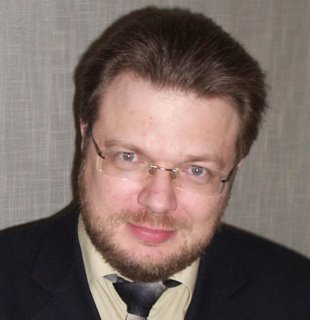German mobile TV Tests Successful
The DVB-H pilot project launched in Germany, by E-Plus, O2, T-Mobile and Vodafone has demonstrated the future potential of handset TV.
In an initial showcase phase, the four network operators have spent three months since the end of May providing Berlin, Hamburg, Hanover and Munich with an extensive TV programme offering on the basis of the DVB-H standard. Both Federal and L?er authorities, as well as the regional media authorities primarily responsible for the granting of frequencies, are now being called on to enable a rapid implementation of the service and of broad market access.
The mobile handset television pilot project in the DVB-H standard (Digital Video Broadcasting Handheld), which was launched for the football World Cup by the German mobile operators E-Plus, O2, T-Mobile and Vodafone, has successfully demonstrated its performance capabilities.
Over a period of three months, around 1,000 test devices were made available in total, including both prototypes and pre-series devices from various manufacturers. In connection with the stable technical operating platform, the response from participants was extremely positive. Whether they were at the Brandenburg Gate in Berlin, in the Olympic Stadium in Munich, on the banks of the Alster River in Hamburg or in the "fan mile" in Hanover, users were impressed by excellent picture quality, good reception and an extensive range of programs. Cooperation with the broadcasters was very successful.
The operators are focusing on the groundbreaking DVB-H technology that already enables the transmission of TV and radio programmes on 16 channels. In future, DVB-H will offer the potential to transmit up to 40 programs to a practically unlimited number of handset users. In the case of DVB-H, data transmission rates for content are being adapted to the possibilities for handset display presentation and available battery performance. Another interesting development is the potential future connection of DVB-H and GPRS/UMTS-based mobile telephone applications that create added value for users: for example, the feedback channel that runs via the mobile telephone data networks will make it possible to enable interactive program formats and deliver additional programme information. All four network operators are convinced of the fact that handset TV based on DVB-H can be developed into a genuine success model. For instance, interactive entertainment and information formats could provide positive impulses for Germany as an educational and business location.
At the IFA (Internationale Funkausstellung), the international consumer electronics trade fair in Berlin, visitors will again be able to experience for themselves the quality of DVB-H. The four operators will be demonstrating the technology at the IFA, at the Technical-Scientific Forum stand (Technisch-Wissenschaftliches Forum).
The DVB-H pilot project has confirmed that handset television offers a high degree of innovation and market potential for the German market. The prerequisites for exploiting these future opportunities are at hand: besides the already established acceptance by future users, this technology enjoys the support of the leading handset manufacturers. Among others, BenQ Siemens, Motorola, Nokia, Sagem and Samsung are focusing on the new technology. An operator consortium of E-Plus, O2, T-Mobile and Vodafone, which is currently being put in place, is intended to facilitate the efficient use of frequencies and the rapid opening of the mobile TV market. This planned shared venture does not intend to generate its own media content but instead will offer mobile telephone company subscribers existing television programs via the new transmission network and will develop innovative formats in co-operation with the programme suppliers.
In order to be able to develop a broad product spectrum for handset television in Germany, a suitable network infrastructure must be created and maintained. The German mobile network operators are at their starting positions and are ready to invest millions to meet this objective. However, in order to ensure a rapid and comprehensive introduction of DVB-H, the requisite statutory planning security must be created. This means that transmission frequencies must be made available across the whole of Germany and a harmonised regulatory framework must be created for this innovative service.
The relevant authorities need to implement decisions soon if Germany is to avoid falling further behind its international competitors. For example, DVB-H has already been launched in Italy on a commercial basis and it is about to be launched in Finland. In this respect, Germany has already relinquished the role it established as innovation leader, when it gained the distinction of running the first technical pilot projects in 2004. This makes an adjustment of broadcasting media policy that enables a rapid opening up of the handset television market an even more urgent priority than ever.
(c) CellularNews
Technorati tags:


0 Comments:
Post a Comment
<< Home